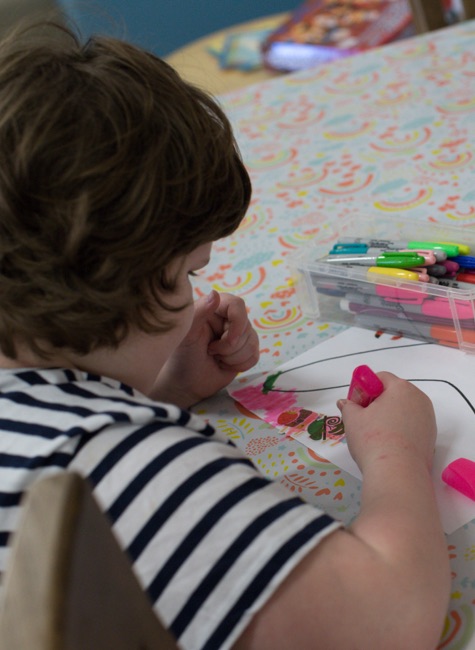Domestic and Family Violence Support
People experiencing domestic and family violence in all of its forms can access a range of confidential supports through UHHS. These include:
Person centred support from experienced caseworkers.
Refuge accommodation and referrals to other appropriate avenues of accommodation.
Brokerage to purchase essential items to replace those left behind or to set up new living arrangements.
Safety planning.
Intake, assessment and case management.
Referrals to specialist domestic and family violence services.
How Can I Get Help?
Legal advice / family law issues
Counselling
Financial counselling

What About the Children?
How Do I Stay Safe?
Thinking ahead and making a safety plan can help you stay safe. Safety planning is NOT about you living in fear, it is about taking proactive steps to improve your safety. You can do this by:
Asking for help
Teaching your children to call 000
Talking to your children about what they should do in an emergency
Asking neighbours to contact police if they hear a disturbance
Planning a safe room in your house that can be locked giving you time to call police
Knowing all the exit routes of the house and property
Planning for different environments, including work and social situations
Being aware of the information that you share on social media
Making a list of emergency contacts
Trusting your instincts
Daisy App

Services
Our services include support as well as practical solutions to provide assistance to remove the person(s) affected by abusive behaviour and situations. To provide a safe place and ongoing help to establish emotional stability and an opportunity to start rebuilding their lives.
What is Domestic Violence?
Domestic and family violence is abusive behaviours by one person to control and dominate another person within a close relationship. Domestic violence can take many forms and can happen to anyone in any social, cultural or age groups. Partners, wives, children, husbands, parents and same sex partners, people living with disability – domestic violence does not discriminate.
The Cycle of Violence
1. Tensions Build
The abuser creates tensions and the survivor's stress builds
4. Calm
Things seem peaceful, maybe even better than before. But often, this won't last long before the cycle starts over.
2. Incident
The abuser lashes out through physical, verbal, psychological or sexual abuse tactics to dominate the survivor.
3. Reconciliation
The abuser makes excuses or attempts to apologise for the incident. Gaslighting is common, aka, "Nothing happened".
The Cycle of Violence
1. Tensions Build
The abuser creates tensions and the survivor's stress builds
2. Incident
The abuser lashes out through physical, verbal, psychological or sexual abuse tactics to dominate the survivor.
3. Reconciliation
The abuser makes excuses or attempts to apologise for the incident. Gaslighting is common, aka, "Nothing happened".
4. Calm
Things seem peaceful, maybe even better than before. But often, this won't last long before the cycle starts over.
Types of Domestic Violence
Coercive control
This can be the most powerful form of control. Fear is created through any behaviour which is used to intimidate you and take away your power.
Physical abuse
This is any physical harm to you, your children, your property, family, friends and pets. It may also involve the threat of weapons.
Intimidation
Includes breaking possessions, intimidating body language, hostile and aggressive questioning, stalking or threats of harm.
Sexual abuse
Includes any unwanted sexual interaction such as forced sexual acts and harassment.
Verbal abuse
Includes constant put downs, insults and verbal threats. Verbal abuse is humiliating and can destroy your self-esteem and self-belief.
Emotional and Pyschological abuse
Any behaviour, actions and comments that undermine your sense of self and destroy your confidence and self-worth.
Spiritual abuse
This includes ridiculing your spiritual beliefs and/or excluding you from participating in culture or spiritual activities.
Financial abuse
This occurs when the abuser takes control over your financial resources, including not allowing you to work or controlling the money you earn and spend.
Social abuse and humiliation, also known as gaslighting
This occurs when the abuser criticises, jokes about or puts you down in front of family, friends, work colleagues and/or controls who you see and where you go. This includes not allowing you to see certain people.
Cyber bulling and cyber harassment
This is the use of any digital technology to harass, humiliate, threaten or intimidate you. This can be done through mediums such as Facebook, Twitter, email chat rooms and mobile phones.
Danger – you need to take action
Physical harm – strangulation
Strangulation is the key “warning shot” of domestic violence before death. Strangulation or pressure applied to the neck can cause significant long term injuries, such as strokes or subtle brain damage, which may not be evident until after the event.It is essential that you seek immediate medical attention if you or someone you know has had pressure applied to your next and are experiencing any symptoms as a result.
